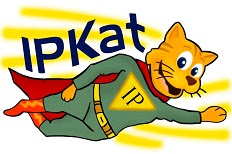INPI: patents disseminate information
I read with attention some information posted by the Brazilian Instituto Nacional da Propiedade Industrial (INPI) regarding patents. The news broadcast educates the readers about the justification of patents. While the report is quite short – just a couple of paragraphs, it does indeed mentions the 3 functions of patents i.e. to stimulate inventive activity; to encourage investment (and so recovering the investment) and; to disseminate information.
Yet, the info focus more on the latter one, and this can be perceived by INPI's chocen title – ‘Patents provide fundamental information for research’. Then, it explains that a “patent reveals everything that has been invented and thus, allows to depart from the prior art i.e. no need to reinvent the wheel”.
The reason for my consideration in this [perhaps no so fashionable] information is that I have later on noticed how much we are focusing on the economic rights of a patent. At the moment I am revisiting the specs of the IP module that I run and I am making sure that I do spend a little more time in this issue – not just in the introduction of the course but in every single IP right. For example by reading INPI’s report I learned that 70% of the information that is disclosed in a patent are not to be found in any other source – did you know that?
The full report can be read here.
Yet, the info focus more on the latter one, and this can be perceived by INPI's chocen title – ‘Patents provide fundamental information for research’. Then, it explains that a “patent reveals everything that has been invented and thus, allows to depart from the prior art i.e. no need to reinvent the wheel”.
The reason for my consideration in this [perhaps no so fashionable] information is that I have later on noticed how much we are focusing on the economic rights of a patent. At the moment I am revisiting the specs of the IP module that I run and I am making sure that I do spend a little more time in this issue – not just in the introduction of the course but in every single IP right. For example by reading INPI’s report I learned that 70% of the information that is disclosed in a patent are not to be found in any other source – did you know that?
The full report can be read here.


















